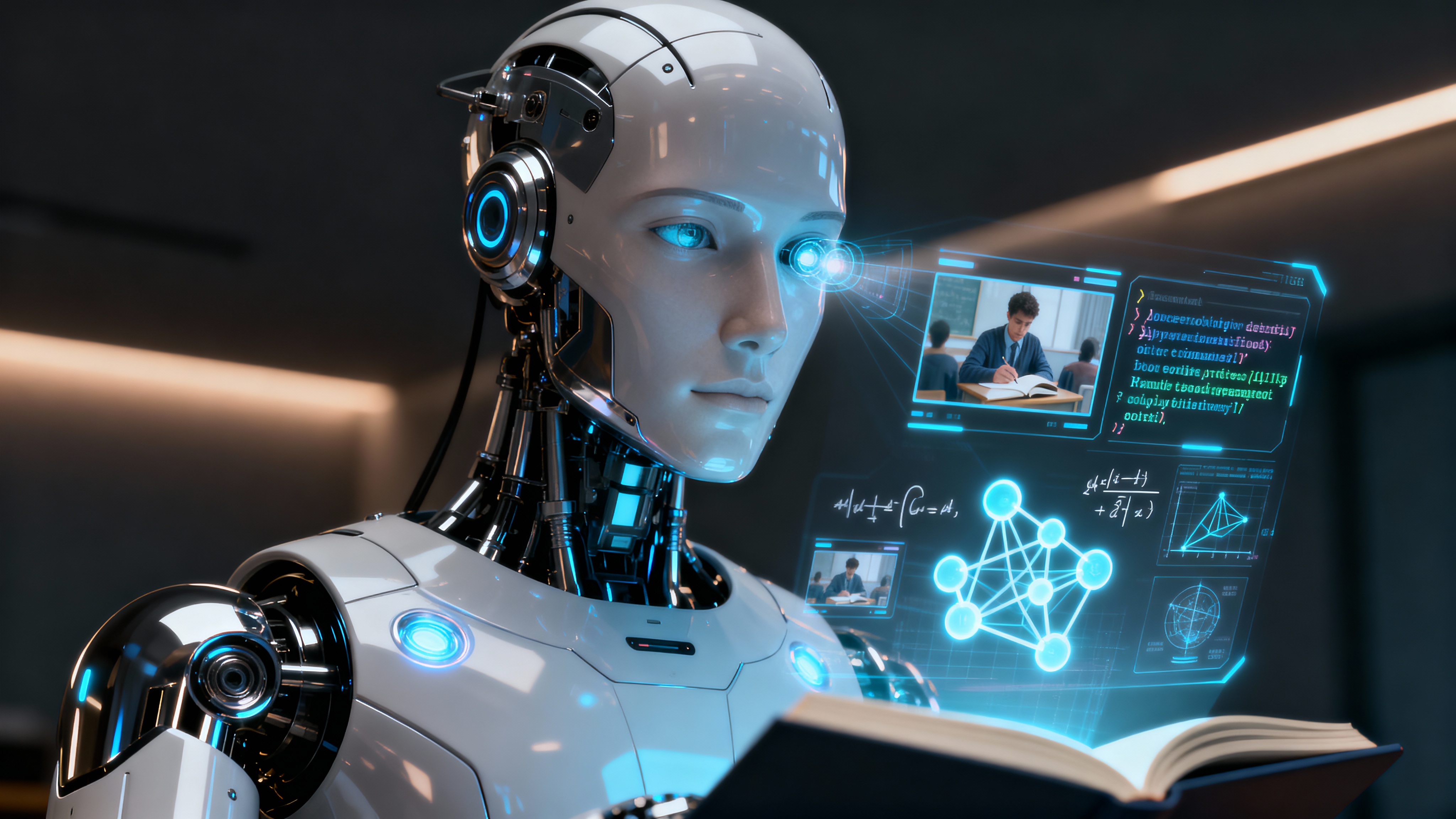
Google Veo 3 is currently the most advanced AI model for video generation. Unlike its competitors, it makes fewer errors, understands queries better (including in Russian), maintains frame order, and doesn’t alter characters beyond recognition.
We’ll explain what neural network training is, what methods were used, and where to take courses to learn how to use AI in your work and creative projects.
What is Veo neural network training
Veo’s first teachers are developers who feed the neural network large arrays of sorted data. Using this data, the AI learns by processing user requests. With each request to correct something, the network acquires new skills, improves, and refines its response.
It works like this:
- the network receives a reference text;
- breaks the image down into visual noise;
- compares the text and image based on the training dataset;
- compiles the new image, assembling it piece by piece like a puzzle;
- generates the image, constructs the sequence, and overlays the audio.
When processing a request, the neural network makes logical inferences. For example, it uses the logic of human language—letter and word combinations. It also considers the relationships between colors, lines, gradients, shapes, and sizes. It also examines the connections between words and images, identifying patterns between definitions and qualitative descriptions of objects.
Veo can change the camera angle (from above, from below, close-up, or panorama), and zoom in and out on objects within the frame. By taking several factors into account, the video has fewer artifacts and respects the physics of the characters, resulting in a highly realistic image. It accurately conveys movement and facial expressions. Articulation is taken into account when voicing characters—during conversations, the audio track accurately matches the characters’ lip movements.
How does the model training process work
The Veo neural network was trained on a dataset that included:
- audio;
- video;
- graphics.
Each dataset was accompanied by text instructions. To prevent the generation of inappropriate content, unsafe and offensive captions were removed from the images beforehand.
Furthermore, the data was filtered by several criteria and semantically deduplicated. This means that duplicates were removed from the dataset, and references to them were replaced with a single link.
The process itself involved a neural network sorting the data, identifying patterns, and building an internal logic for generating new data. This type of learning is called unsupervised.
Veo 3 Courses and Guides
You can find tutorials online on creating prompts for Veo. The developer’s official website also has guides. However, in Russia, only a short guide covering the basic settings is available. To use the full version, you need to change your IP address.
For those who aren’t satisfied with simply learning how to create requests according to the guide and who want to delve deeper into AI, it’s worth taking courses. For example, on our website, you can access paid and free courses on neural networks for:
- marketers;
- content creators;
- social media specialists;
- creative professionals.
Understanding how neural networks work will help you write the right prompts for generating creative and advertising content for social media. It will also reduce the time spent on post-processing and error correction.
Results
Google’s Veo 3 is an innovative model that surpasses existing neural networks and can be used to create realistic video content. However, in Russia, it can only be accessed by changing your IP address, registering an account with a foreign address, and linking a foreign bank card.
A simpler option is to find platforms available to Russian users. On our website, you can experience the power of cutting-edge AI models for creating text, images, and videos for free, without downloading additional apps. Full functionality is unlocked after subscribing—we offer five plans for businesses and creative projects.

